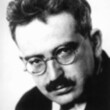Chronicles of a liquid society
(Book)
854 ECO
1 available
854 ECO
1 available
Copies
| Location | Call Number | Status |
|---|---|---|
| Central - Adult Nonfiction | 854 ECO | Available |
| Shirlington - Adult Nonfiction | 854 ECO | Available |
Description
More Details
Notes
Subjects
Excerpt
Similar Titles From NoveList
Similar Authors From NoveList
Published Reviews
Booklist Review
A posthumous collection of brief opinion pieces from late in Eco's (Numero Zero, 2015) career demonstrates the great novelist-scholar's lively wit and vigorous intellectual engagement with our rapidly changing world. Originally appearing in the Italian news magazine l'Espresso, the essays were intended as glimpses at whatever might come into his head: observations about current events and cultural trends as well as more esoteric intellectual topics. That his column was named after a well-known brand of matchbook underscores both his anecdotal, scratch-paper approach and the reliable, if quick, illumination provided. Typically prompted by recent books or events, Eco's subjects are diverse: technology, anti-Semitism, Silvio Berlusconi, Harry Potter, the philosopher Hypatia, terrorism, and the excess of stupidity that clogs the Internet. But his erudition and his sharp critical eye remain constant. And if he is frequently exasperated by modern progress he longs for the days when cell phones were only used by adulterers he is also clearly energized by the pace of today's world and its ability to outpace those, like himself, who try to understand it. Eco will be missed.--Driscoll, Brendan Copyright 2017 Booklist
Publisher's Weekly Review
This posthumous collection of essays reprints spirited selections from a column, "La bustina di Minerva," that the late novelist Eco (Numero Zero) wrote for the Italian weekly magazine L'Espresso. These "brief jottings," which span the years 2000-2015, cover a range of topics, including education, technology, racism, and religion, and add up to a picture of a society in flux. Eco's writing reveals a humanist in every sense of the word, well acquainted with the classics of Western civilization and able to take a broad, often amused view of human affairs. Neither a snob nor a prude, Eco takes as his central theme the value of knowledge, along with the process of identifying, acquiring, preserving, and transmitting it. His conclusions are grounded in moral principles such as tolerance and good old-fashioned courtesy, and the only enemies he identifies are the enemies of knowledge: ignorance, credulity, violence, and fear. Dixon's translation is seamless, capturing Eco's erudite style (and keeping the occasional sprinkle of Latin.) This volume's primary reward lies in the pleasure of watching a finely calibrated, expansive, and logical mind build an argument or deconstruct cant. Eco has left us an intelligent, intriguing, and often hilariously incisive set of observations on contemporary follies and changing mores. (Nov.) © Copyright PWxyz, LLC. All rights reserved.
Library Journal Review
Starting in 1985, novelist and essayist Eco (1932-2016) wrote a regular column for the Italian weekly L'Espresso. Two previous collections of these essays-How To Travel with a Salmon & Other Essays and Turning Back the Clock-were published in 1994 and 2007, respectively. This new compilation includes selected pieces from 2000 to 2015, and again shows the range of Eco's interests and concerns. The writings are arranged under broad topics such as "Turning Back the Past," "Online," "On Cell Phones," "On Mass Media," "Forms of Racism, Religion and Philosophy," and more. By "liquid society," Eco refers to the constant state of change, sometimes radical, that individuals and nations undergo, in which the old truths collapse and newer ones have not been fully developed, which leads to a sense of dislocation and confusion. For example, the rapid acceleration of new media and technologies have people constantly trying to catch up with the latest advances, resulting in a feeling of being left behind as newer systems are brought forth. Although one may not recognize some of the philosophers and social thinkers analyzed and dissected here, the prose (excellently translated by Dixon) is easy to read and often amusing. VERDICT Recommended for all library collections. Readers familiar with Eco's entertaining, occasionally humorous style will be further delighted. [See Prepub Alert. 5/8/17.]-Morris Hounion, New York City Coll. of -Technology, Brooklyn © Copyright 2017. Library Journals LLC, a wholly owned subsidiary of Media Source, Inc. No redistribution permitted.
Kirkus Book Review
A swan song from one of Europe's great intellectuals.After publishing numerous novels, criticism, essays, and so much more, Eco (Numero Zero, 2015, etc.) died in 2016 at the age of 84. Like a few others before him, including Edmund Wilson and Lionel Trilling, among others, Eco proved that one could write for many audiences. Following up on two similar collections, this book contains more than 100 short opinion pieces originally published in L'Espresso magazine from 2000 to 2015. He calls them "reflections on aspects of this liquid society' of ours," and they encompass the current crises facing countries across the world, a collapse of ideologies, and the rise of unbridled individualism. They are divided into 13 titled sections, including "From Stupidity to Folly." Eco was no curmudgeon, but he didn't suffer fools gladlye.g., the "excess of stupidity is clogging the [internet] lines." The author regularly discusses his dislike of cellphones; people "no longer talk face-to-faceno longer reflect on life and death, and instead talk obsessively, invariably with nothing to say." There's a distinct Italian lean to these pieces, so some travel better than others, but it's not so much the information they convey as much as the intellect and thought processes of the conveyor. As Eco admits in one of the last pieces, "don't take the things you have just read as pure gold." In one piece, he discusses the Italian government selling off their Maserati cars; in another, the letters of Ian Fleming, who "was a master of style," and James Joyce. We learn that Eco is a big fan of the "amiable universe" of Rex Stout's Nero Wolfe and that Art Spiegelman is a "genius," Maus "one of the most important pieces of literature on the Holocaust." Even when he's apologizing for not writing prefaces for people's books, Eco entertains with his intellect, humor, and insatiable curiosity. Although some of these pieces have a tired feel, there's much here to enjoy and ponder. Copyright Kirkus Reviews, used with permission.
Booklist Reviews
A posthumous collection of brief opinion pieces from late in Eco's (Numero Zero, 2015) career demonstrates the great novelist-scholar's lively wit and vigorous intellectual engagement with our rapidly changing world. Originally appearing in the Italian news magazine l'Espresso, the essays were intended as glimpses at whatever might come into his head: observations about current events and cultural trends as well as more esoteric intellectual topics. That his column was named after a well-known brand of matchbook underscores both his anecdotal, scratch-paper approach and the reliable, if quick, illumination provided. Typically prompted by recent books or events, Eco's subjects are diverse: technology, anti-Semitism, Silvio Berlusconi, Harry Potter, the philosopher Hypatia, terrorism, and the "excess of stupidity" that clogs the Internet. But his erudition and his sharp critical eye remain constant. And if he is frequently exasperated by modern "progress"—he longs for the days when cell phones were only used by adulterers—he is also clearly energized by the pace of today's world and its ability to outpace those, like himself, who try to understand it. Eco will be missed. Copyright 2017 Booklist Reviews.
Library Journal Reviews
Novelist, essayist, and semiotician nonpareil (see his star turn in Laurent Binet's sensational The Seventh Function of Language), Eco began writing a regular column for the Italian weekly magazine L'Espresso in 1985. It ranged from Herodotus to pop culture but frequently addressed our "liquid society," where community has been lost and friends and colleagues turned into competitors.
Copyright 2017 Library Journal.Library Journal Reviews
Starting in 1985, novelist and essayist Eco (1932–2016) wrote a regular column for the Italian weekly L'Espresso. Two previous collections of these essays—How To Travel with a Salmon & Other Essays and Turning Back the Clock—were published in 1994 and 2007, respectively. This new compilation includes selected pieces from 2000 to 2015, and again shows the range of Eco's interests and concerns. The writings are arranged under broad topics such as "Turning Back the Past," "Online," "On Cell Phones," "On Mass Media," "Forms of Racism, Religion and Philosophy," and more. By "liquid society," Eco refers to the constant state of change, sometimes radical, that individuals and nations undergo, in which the old truths collapse and newer ones have not been fully developed, which leads to a sense of dislocation and confusion. For example, the rapid acceleration of new media and technologies have people constantly trying to catch up with the latest advances, resulting in a feeling of being left behind as newer systems are brought forth. Although one may not recognize some of the philosophers and social thinkers analyzed and dissected here, the prose (excellently translated by Dixon) is easy to read and often amusing. VERDICT Recommended for all library collections. Readers familiar with Eco's entertaining, occasionally humorous style will be further delighted. [See Prepub Alert. 5/8/17.]—Morris Hounion, New York City Coll. of Technology, Brooklyn
Copyright 2017 Library Journal.Publishers Weekly Reviews
This posthumous collection of essays reprints spirited selections from a column, "La bustina di Minerva," that the late novelist Eco (Numero Zero) wrote for the Italian weekly magazine L'Espresso. These "brief jottings," which span the years 2000–2015, cover a range of topics, including education, technology, racism, and religion, and add up to a picture of a society in flux. Eco's writing reveals a humanist in every sense of the word, well acquainted with the classics of Western civilization and able to take a broad, often amused view of human affairs. Neither a snob nor a prude, Eco takes as his central theme the value of knowledge, along with the process of identifying, acquiring, preserving, and transmitting it. His conclusions are grounded in moral principles such as tolerance and good old-fashioned courtesy, and the only enemies he identifies are the enemies of knowledge: ignorance, credulity, violence, and fear. Dixon's translation is seamless, capturing Eco's erudite style (and keeping the occasional sprinkle of Latin.) This volume's primary reward lies in the pleasure of watching a finely calibrated, expansive, and logical mind build an argument or deconstruct cant. Eco has left us an intelligent, intriguing, and often hilariously incisive set of observations on contemporary follies and changing mores. (Nov.)
Copyright 2017 Publishers Weekly.Reviews from GoodReads
Citations
Eco, U., Dixon, R., & Eco, U. (2017). Chronicles of a liquid society . Houghton Mifflin Harcourt.
Chicago / Turabian - Author Date Citation, 17th Edition (style guide)Eco, Umberto, Richard, Dixon and Umberto. Eco. 2017. Chronicles of a Liquid Society. Boston: Houghton Mifflin Harcourt.
Chicago / Turabian - Humanities (Notes and Bibliography) Citation, 17th Edition (style guide)Eco, Umberto, Richard, Dixon and Umberto. Eco. Chronicles of a Liquid Society Boston: Houghton Mifflin Harcourt, 2017.
Harvard Citation (style guide)Eco, U., Dixon, R. and Eco, U. (2017). Chronicles of a liquid society. Boston: Houghton Mifflin Harcourt.
MLA Citation, 9th Edition (style guide)Eco, Umberto, Richard Dixon, and Umberto Eco. Chronicles of a Liquid Society Houghton Mifflin Harcourt, 2017.






























